The short film “The Flow of Justice,” focuses on specific communities, and their ongoing fight for clean drinking water faced by many families around the world.
Created this past summer, this was a project by students from Fresno State’s Department of Media, Communications and Journalism (MCJ) and mentored by Professor Samuel Contreras.
The crew who worked on this project included:
- Sarah Fries (research/production manager)
- Brady Lane (editor)
- Bear Guerra (photos)
- Dakota Dean (camera)
- Ricardo Reyna (camera)
- Jaselina Garcia (camera)
- Christian Hernandez (camera)
- Macario (Kevin) Cordova (camera)
- Professor Samuel Contreras (camera)
Contreras, a faculty member in the MCJ department at Fresno State, believes in the need to give back to the community which was the inspiration for this film.
Part of his goal of helping aspiring filmmakers is to allow them to explore.
“I think that’s what art is all about,” Contreras said. “To explore and see what you fit in. Develop your own unique voice that will make you stand out as an artist.”
For over 10 years, Contreras has been researching water and working with underrepresented communities, to whom he identifies and relates.
“I think that puts me in another level of understanding the issue, giving a platform for them to really express themselves, to really fight for justice, to denounce injustices,” Contreras said. “And so that’s my inspiration.”
He also noted some of the challenges for the film were the incredible heat during the summer and planning meeting dates that would fit everyone on the film crew’s schedule. However, for the most part, everything ran smoothly, according to Contreras.
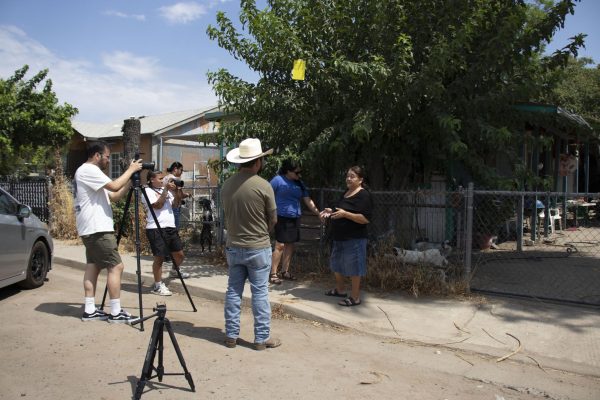
Contreras looks forward to submitting the film to a film festival and afterward will be able to make the film public and broaden the audience.
Contreras highlights the critical nature of water, stating that it’s fundamental for survival and will eventually transform into a universal concern.
“So you just think, ‘Oh, these people, they are in the middle nowhere in Tulare County suffering to have clean water. Oh poor them.’And that’s it, and don’t think about that. It’s also our community, first of all, we got to support each other. And second of all, (it’s) something that ultimately even affects every single person in this planet,” Contreras said.
Contreras has put in lots of time researching this issue and was surprised by the lack of media coverage around it. He also believes that the people who are suffering from this deserve to have their voices heard.
One of the students who contributed to the making of this film is Ricardo Reyna, MCJ film and media arts major.
Reyna shared what started him on this path for filmmaking.
“Honestly, I just love being creative,” Reyna said. “Love being able to storytell. It’s just something I’ve always been passionate about since I was younger.”
Reyna not only expressed his passion for storytelling but also activism. He found being able to make a movie about a serious topic to be a great overlap, causing him to be ready and eager to join the project.
With a film like this one, touching on a prevalent issue in today’s world, Reyna would like viewers to keep an open mind when watching it.
“There are worlds that are smaller than yours out there, that are going through bigger problems,” Reyna said. “Be open to that, be receptive to that, and try to help along the way, whatever way you can.”
Reyna described the feeling of being able to see an audience react to a film he helped make to be “gratifying” and “pretty surreal.”
He enjoyed the experience of being able to help work on a project and shared he was a former student of Contreras. Above all else, Reyna wanted to make sure that the film did right by the subjects of the film in regards to presenting the story the best way they could and being truthful.
“I just wanted to make sure we amplified the voices that were speaking as much as we could,” Reyna said. “And to minimize any kind of harm that we were potentially going to cause just because of the nature of what we do as documentarians, journalists, it could cause harm to certain people.”
Reyna encouraged those who wish to start filmmaking to simply go out there, pick up a camera and start filming to see what they can create.
Reyna explained that the main idea is to visualize something in your mind and then communicate that vision to others.
“I gotta say, I’m so grateful for the students’ work,” said Susana De Anda, co-founder and executive director of the Community Water Center (CWC).
De Anda was featured in the film and had a prominent role in it as she helped represent the CWC as the movie closely focuses on this organization. Its mission is to find solutions for communities to have safe drinking water.
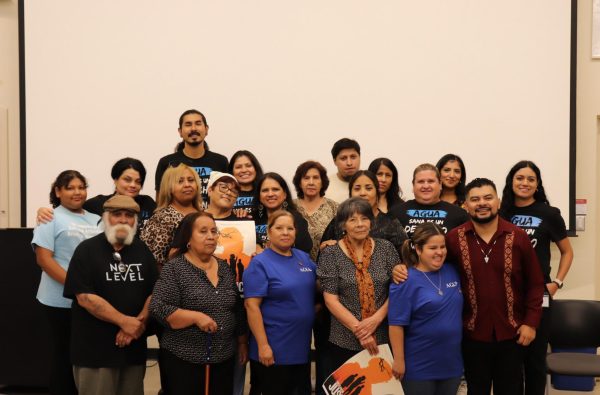
The movie goes in-depth about its history and members’ challenges along with a strong determination to accomplish the goals they and their predecessors have set.
In an interview with the Collegian, De Anda expressed the importance of understanding where your drinking water source comes from and its quality. She shared that if you are paying for water, your provider must give you a yearly report that shows the water’s quality and possible contaminants.
De Anda said that having access to good information is essential for the community to be informed about these issues. She recommends getting a certified filtration device that can remove contaminants in your water. There’s a list of these that can be found on the state water board.
“If you don’t have access to good information, you’re not making informed decisions,” De Anda said.
She also explained that boiling water removes bacteria but concentrates nitrates and drinking water with high levels of nitrate can be very harmful, especially for infants and women who are pregnant.
De Anda believes that by being aware of this information people can make better water and health choices.
“I would ask everybody, whoever listens to this and whoever reads this, figure out what’s in your drinking water,” De Anda said. “And if you don’t know what’s in your drinking water, we are more than happy to help you figure that out.”
The turnout for the film was beautiful, according to De Anda.
“It just shows that there’s a lot of opportunity to continue to bring awareness and remind every human being, because as far as I know, you’re human, you deserve safe water and safe air to breathe and survive,” De Anda said.
As a community it is crucial to stay informed and make smart choices, and “The Flow of Justice” aims to advocate for safe drinking for all.




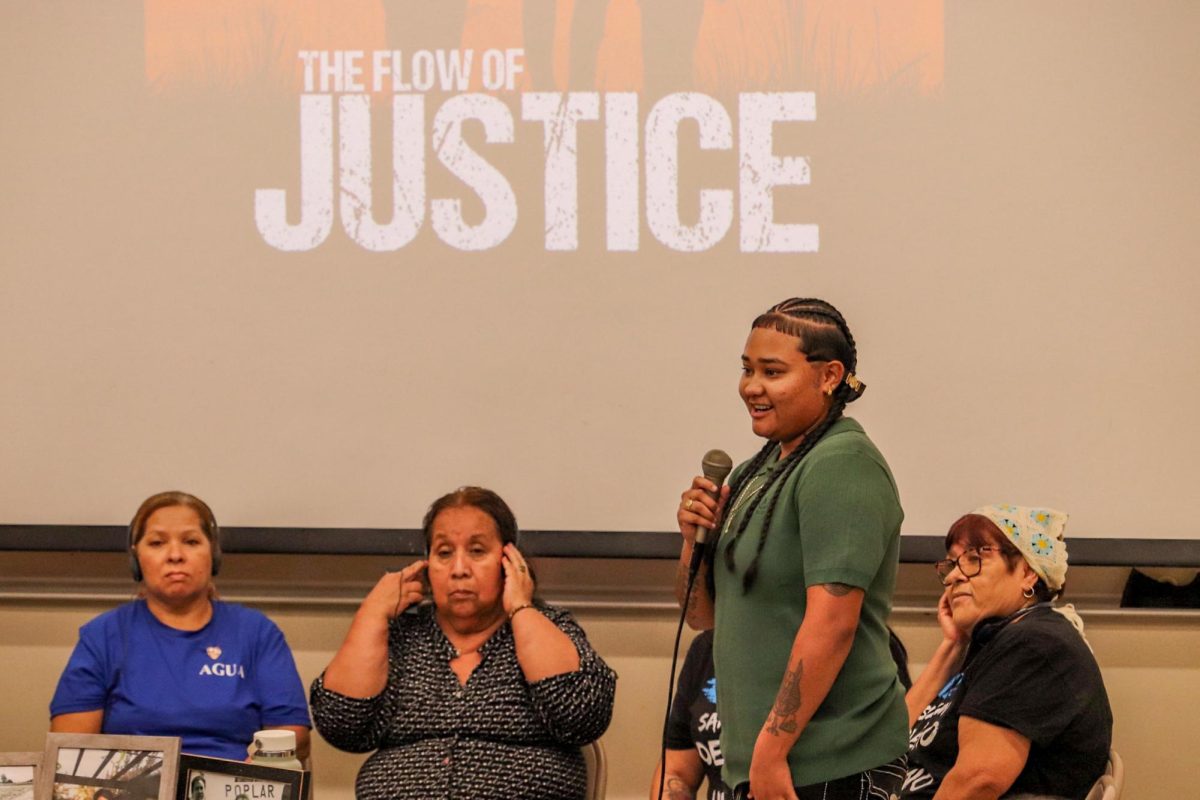
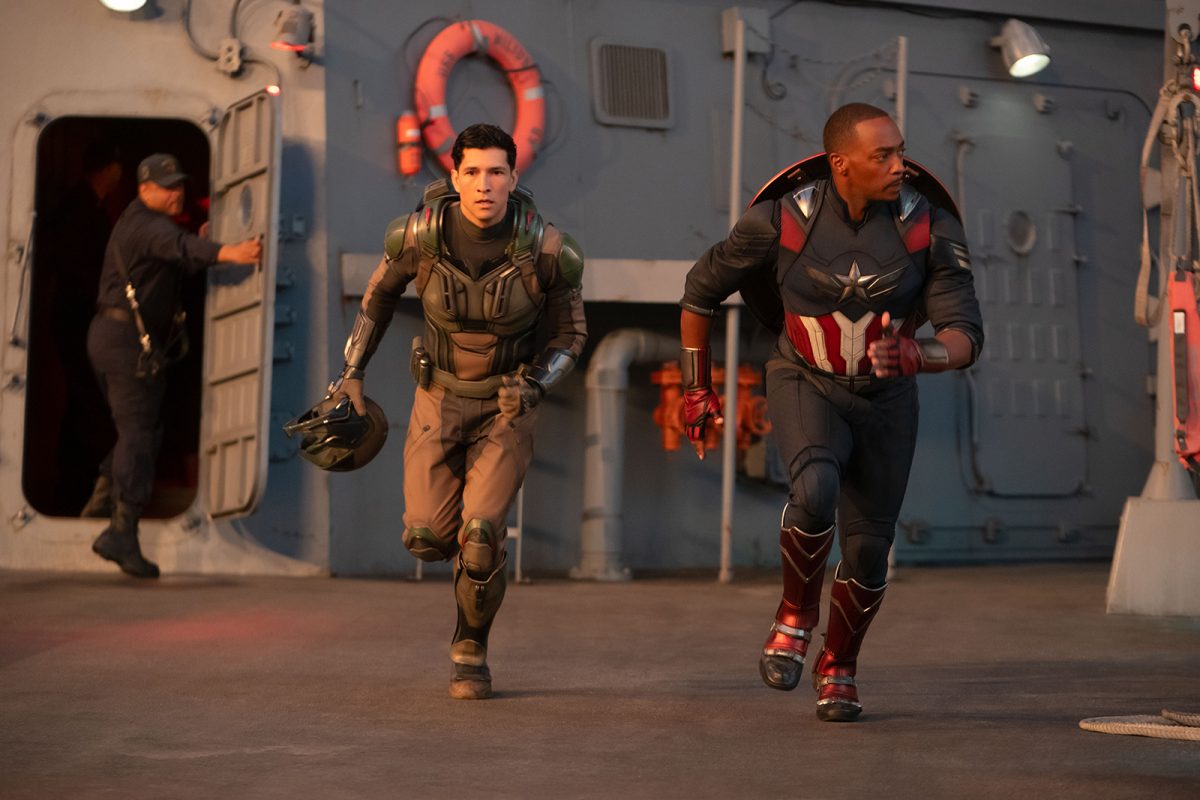
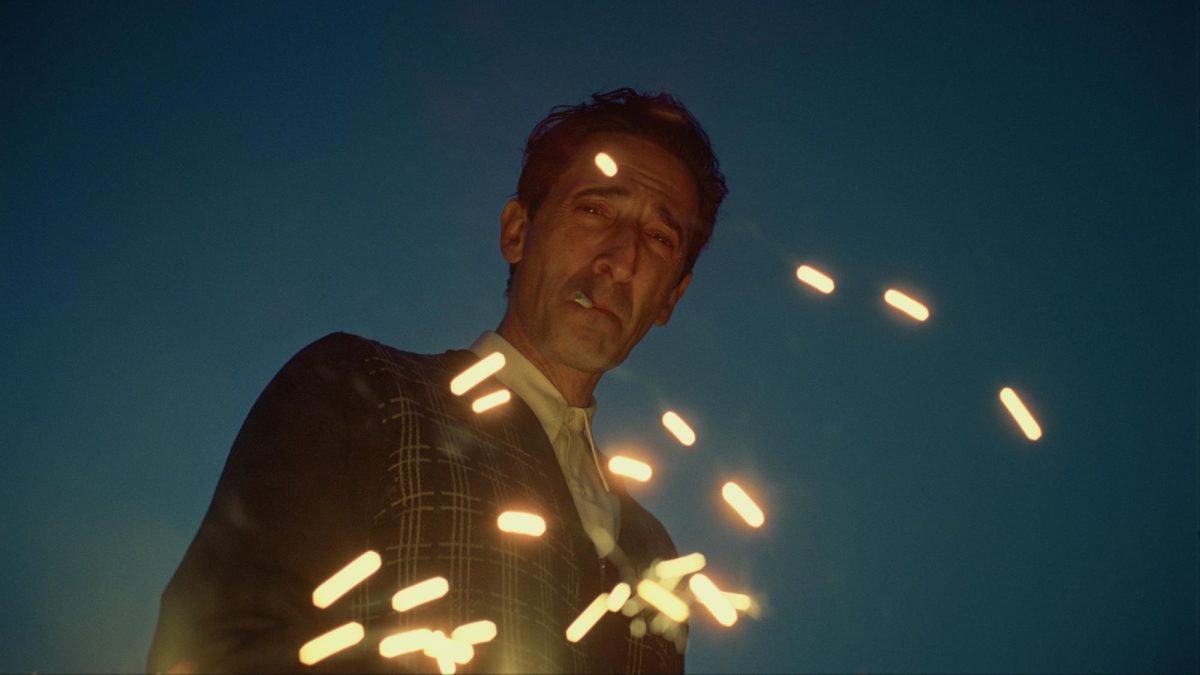
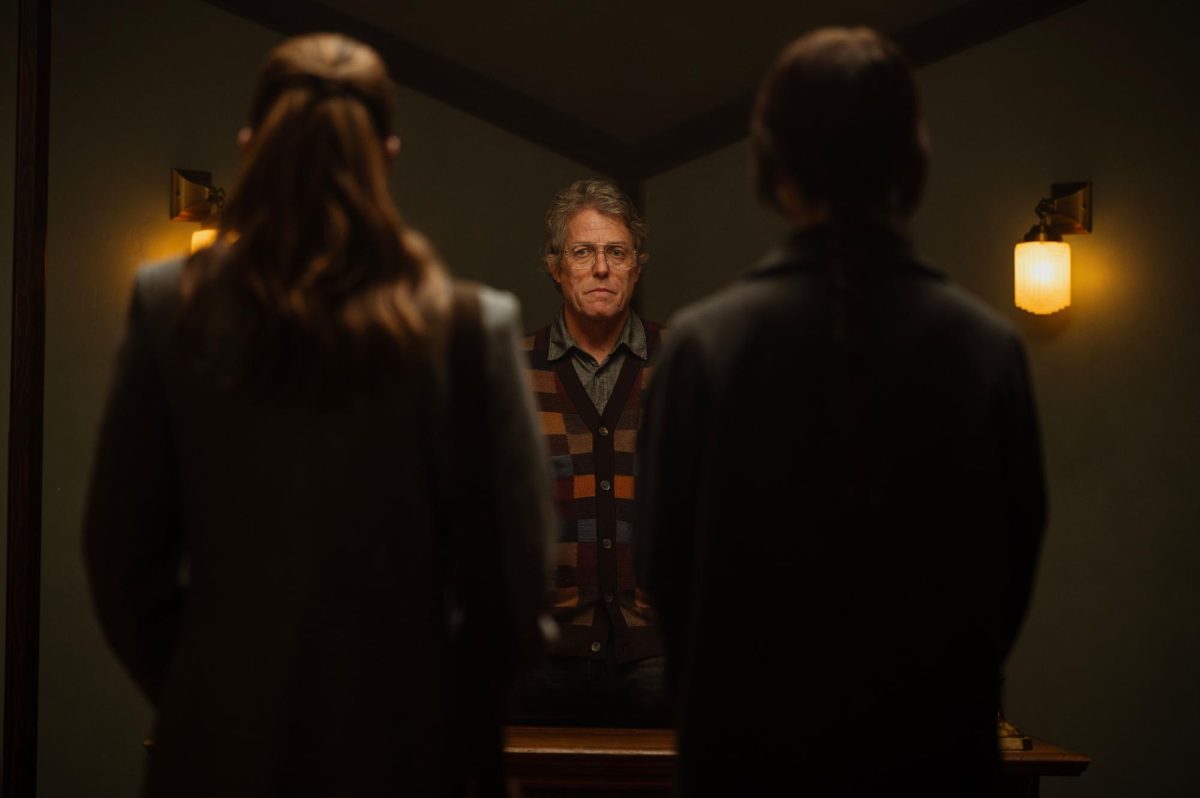



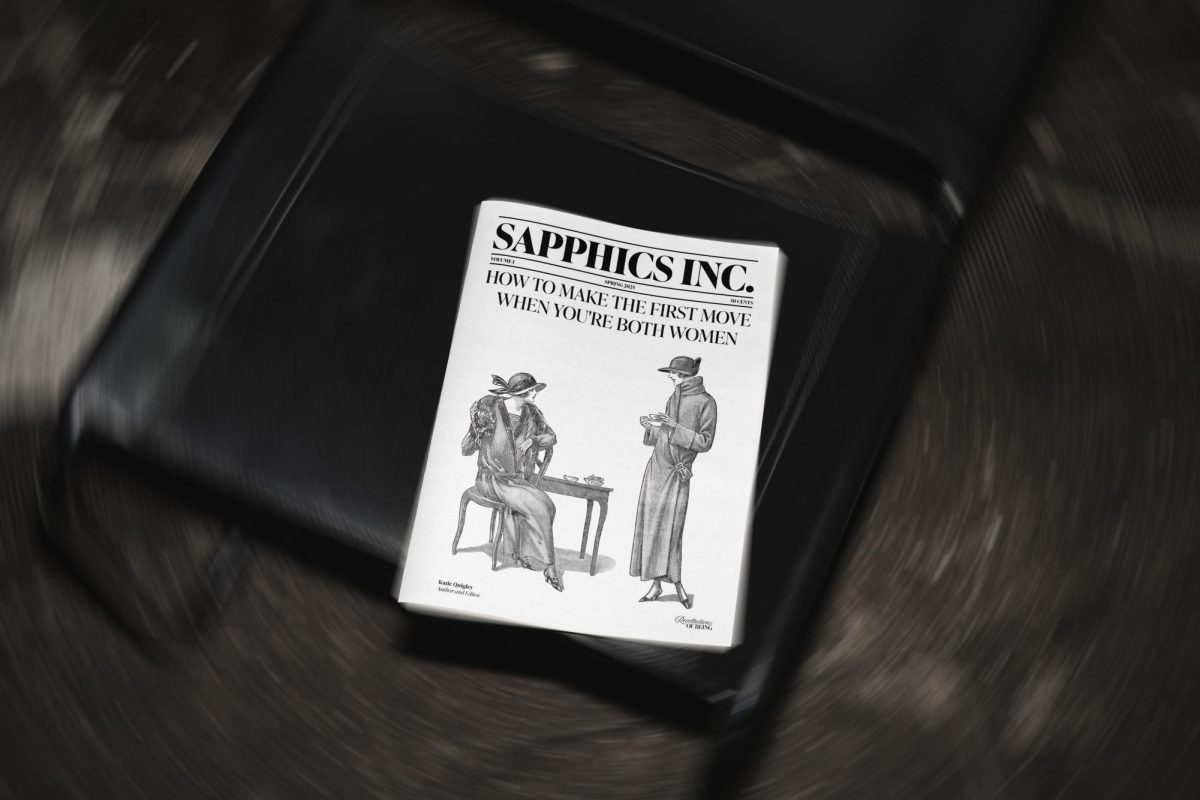

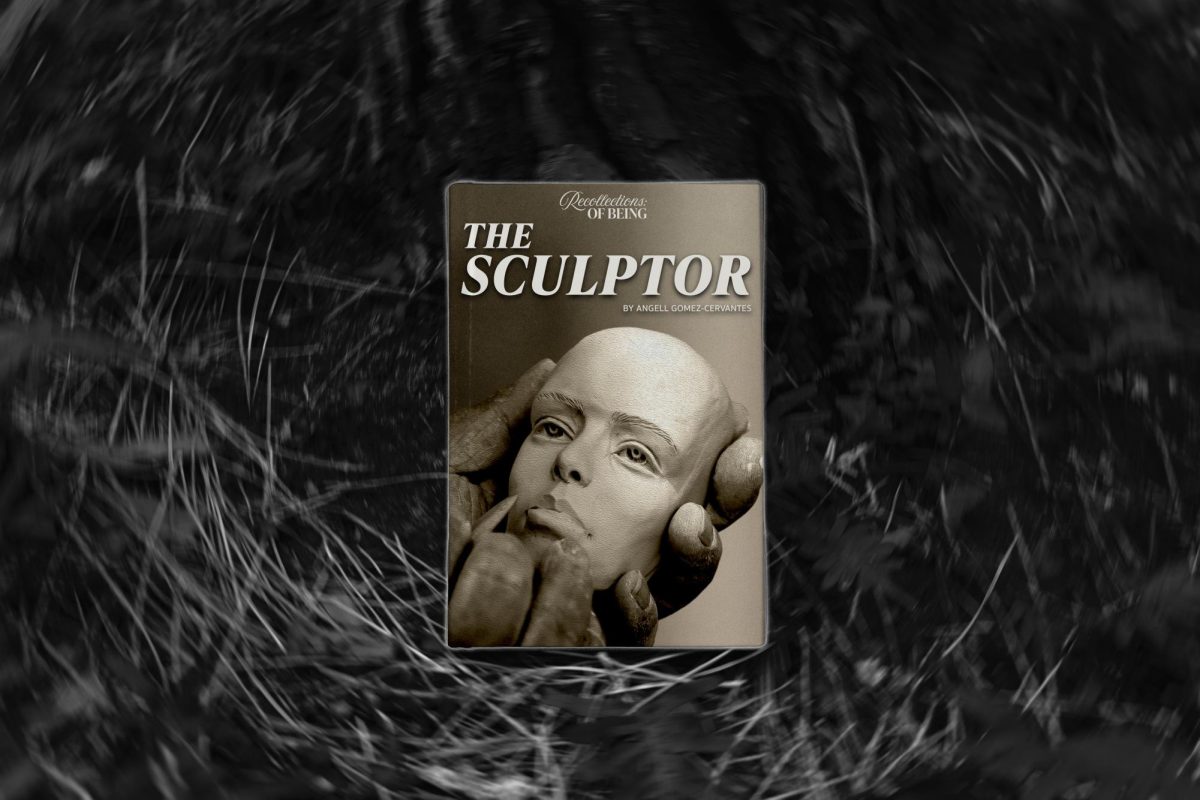
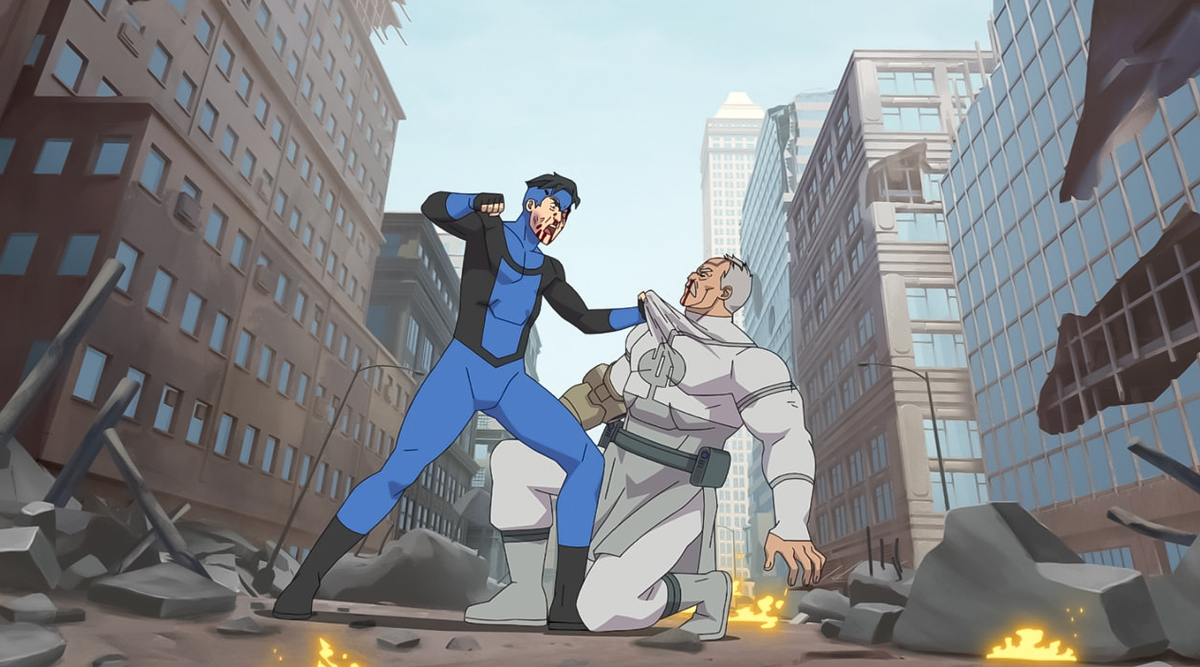
Vince • Oct 13, 2024 at 3:53 pm
I applaud you all for brining attention to such an important issue. And I gotta give a special shoutout to Jay Garcia. Keep up the good work!